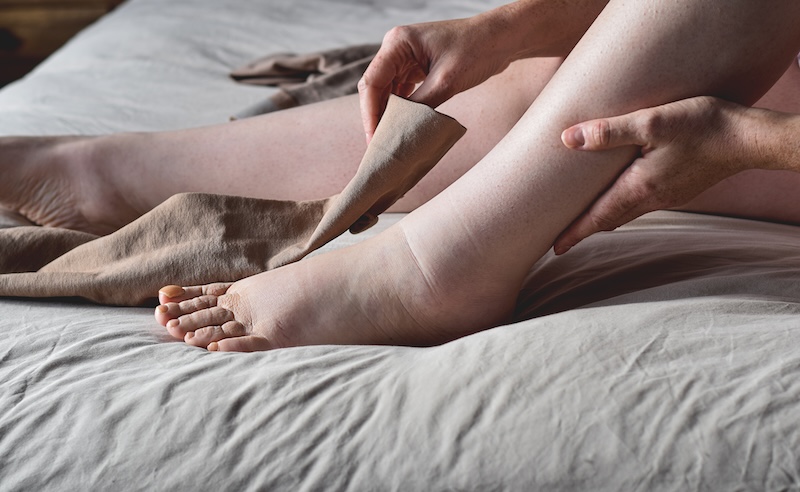Understanding Benefits of Compression Therapies for Wound Healing
Tuesday, April 23, 2024

At Restore First Health, we offer advanced care for healing chronic wounds, which in some cases, can include compression therapies to reduce swelling. This is an important aspect of a patient’s care plan because swelling is often present in chronic wounds and can lead to poor wound healing.
What causes swelling?
When an injury occurs, the body’s immune system triggers an increase in blood flow to the wound to support the healing process. However, for chronic wounds, an increase in blood flow can cause extreme swelling and potentially delay the healing process.
Excessive leg swelling, or edema, impairs the body’s natural wound healing response by decreasing blood flow and oxygen exchange at the wound bed, thus the importance of compression therapies in managing this condition. “When swelling happens, fluid builds up and causes increased pressure. This can further damage tissue and restrict blood flow. Compression therapies can help prevent and reduce swelling by applying pressure to alleviate buildup of excess fluid. Many of our patients have conditions that can greatly increase the chances of swelling including congestive heart failure, kidney disease, venous insufficiency or cirrhosis of the liver and certain neurologic disorders. Evaluation of these co-morbid conditions is critical to understanding wound healing and complications that can occur”.
Dr. Frank Curvin, Medical Director for Restore First Health, shares his perspective on the importance of compression therapies: “We help our patients understand the benefits of compression treatments and review a range of options that best suits each patient and their ability to apply these therapies. This can range from compression garments such as support stockings, leg wraps and even pneumatic (air) compression.”
In addition to compression therapy, there are other ways to help prevent and reduce swelling and fluid retention:
- Ensure proper hydration
- Reducing salt intake
- Elevating the affected area
- As much physical activity as possible
Our care teams are always on alert for signs of swelling and partner with each patient to address their specific needs. At Restore First Health, we bring greater peace of mind to patients and caregivers by providing education and recommendations for compression therapies to the bedside.
Supporting Resources:
A.D.A.M. Medical Encyclopedia: https://medlineplus.gov/ency/article/003104.htm
